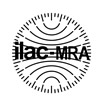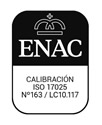The Crea Clinic, in Valencia, has the most advanced technology in its assisted reproduction laboratories, not only in terms of the instruments and equipment used in the treatments, but also in terms of air quality.
However, despite having all the necessary elements, including an air purifier and a CODA tower for filtering volatile organic compounds, there was one point of improvement that focused on the monitoring of indoor air quality (and specifically the detection of volatile organic compounds), where Envira could help them.
Standard UNE 179007: Quality management systems for assisted reproductive clinics
Air quality management in assisted reproduction clinics is of paramount importance, as an appropriate environment free of pollutants has a direct impact on the success of treatments.
Standard UNE 179007, entitled “Health Services. Quality Management Systems for Assisted Reproduction Laboratories” is a Spanish technical standard that sets out the requirements and recommendations for ensuring a healthy indoor environment in these facilities.
Among the main aspects addressed by this standard, it is worth highlighting the establishment of certain requirements for air filtration in the treatment and laboratory areas, with the aim of minimising the presence of particles and pollutants such as volatile organic compounds, which, due to their embryotoxic nature, can affect air quality and embryo viability.
It also specifies temperature and humidity control, establishing optimal temperature and relative humidity ranges to maintain a suitable environment for assisted reproduction processes.
VOC detection sensors
As mentioned in the article “The importance of air quality in assisted reproduction laboratories“, VOCs are compounds that are highly volatile at room temperature and can cause embryo implantation failure.
The classification of VOCs includes hydrocarbons, alcohols, aldehydes, ketones, esters, halogenates… and therefore, in the context of assisted reproduction laboratories, VOCs can be of concern due to their presence in various materials, cleaning products or even personal hygiene products.
Air quality monitoring allows regular assessment of air quality in assisted reproduction laboratories, including measurement of VOC levels, to help identify areas or situations where improvements are needed.
This includes maintaining adequate ventilation, detecting VOC leaks from medical equipment and chemical storage systems, and ensuring that air purification systems are working properly.
24/7 real-time VOC monitoring
When the Crea Clinic began the process of auditing and obtaining UNE 179007 certification, they became even more aware of how Nanoenvi IAQ could help them monitor volatile organic compounds in real time and control indoor air pollution levels at all times.
The benefits they valued the most were:
- The easy installation of the device without any building work.
- Its tetradecimal accuracy in the measurement of VOCs.
- Continuous data collection and recording every 30 seconds.
- Remote access to the platform from any device.
- The configuration of customised alerts when limit values are exceeded.











